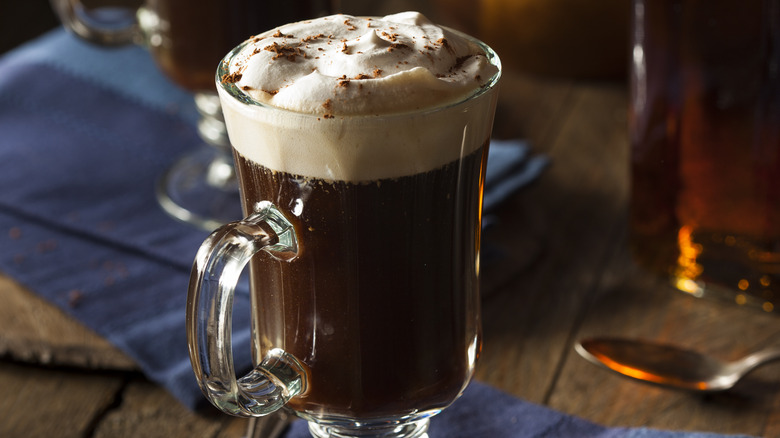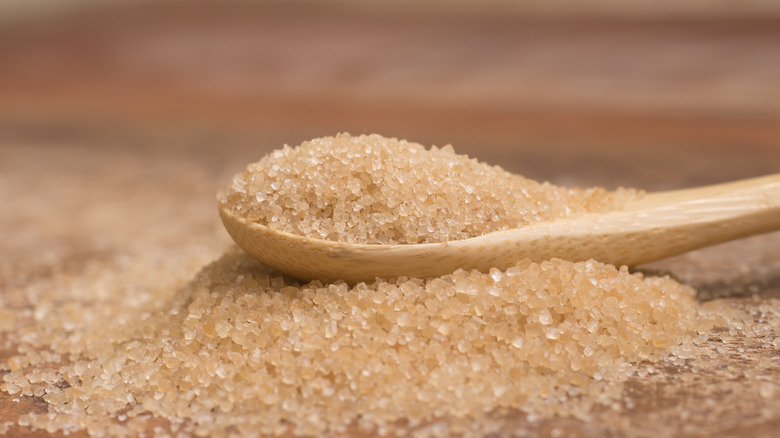Why You Should Use Demerara Sugar In Your Irish Coffee, According To A Cocktail Expert
In the quest to create the most delicious Irish coffee ever, we spoke to Molly Horn, manager of cocktail strategy at Total Wine & More. She revealed the secret to elevating this classic libation: the addition of Demerara sugar. As Horn told Mashed, this sweet element brings a more pleasant palate to the caffeinated, boozy beverage by mellowing out the innate bitterness of coffee and Irish whiskey.
Many conventional Irish coffee recipes call for brown sugar to be dissolved into the coffee-meets-whiskey concoction. The sugar serves to harmonize the diverse elements, resulting in a well-rounded potable that can be enjoyed on St. Paddy's Day or any other occasion. Horn emphasizes the importance of balance, asserting that the acidity of hot coffee and the gentle aura of Irish whiskey find their equilibrium with a spoonful of sugar. Demerara sugar, Horn's sweetener of choice, is hailed for its mild, rich flavor and naturally tanned hue. Though it is often mistaken for a variety of brown sugar, there are some real differences between Demerara sugar and brown sugar, including the addition of molasses to the latter.
Understanding the unique qualities of Demerara sugar is crucial to appreciating its role in enhancing the caife Gaelach experience. The light brown, partially-refined sugar, which originates from the Demerara region in Guyana, boasts large, golden crystals and a caramel-like flavor. Its distinct characteristics make it ideal for enhancing the Irish coffee without overpowering the delicate essence of the distilled spirit.
Demerara sugar offers a touch of sweetness
Demerara sugar emerges as a crucial ingredient in Molly Horn's recipe for Irish coffee. Traditional light and dark brown sugars carry bold notes of molasses that can potentially overshadow the nuances of uisce beatha ("water of life," the term for whiskey in the Emerald Isle). For this reason, Horn recommends Demerara sugar as the best way to infuse the drink with sweetness without overwhelming intensity. If you don't have Demerara sugar at the ready, there are a few substitutes for Demerara sugar that do the trick. Horn prefers agave nectar over conventional brown sugars, emphasizing the need for a sweetener that complements the cocktail's strong flavors rather than dominating them.
Horn shared some valuable Irish coffee-making tips for skilled mixologists and home bartenders alike. For one, she advocates for tempering the glassware by letting it sit with hot water for a minute before rustling up a mug. "You don't want a cold or room-temperature glass to bring your coffee down in temperature, especially because you're adding room-temperature whiskey and you need the sugar to dissolve into the mixture." Horn advises pouring the coffee into the glass before adding the sugar and then giving it a few stirs before introducing the whiskey. This meticulous approach allows the sugar to integrate seamlessly, contributing to a well-balanced Irish coffee experience.

